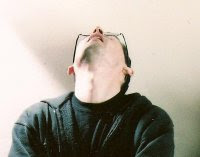
First of all, how surprising is it that with only four movies to his credit, Terrence Malick has emerged as such a major influence on the new generation of filmmakers?
As regards this movie, I'm not sure that it's more than half-successful as an examination of hero worship and celebrity culture, at least not until a second viewing. These elements in the narrative and in the characters' psychologies are present but not complexly developed, I don't think. I got more psychological depth on the subject of hero-obsession in Sam Fuller's I Shot Jesse James, from 1949.
Rather, this movie succeeds for me on the level of a purer cinematic experience, a filmmaker's film. This is a film about what it looked, sounded, and felt like to live in rugged frontier communities in 1882 America, a land still only half-civilized and under the grip of codes of personal honor and skill with weapons. It's a film about wooden frame houses, horseback riding across a snowy field, biscuits cooking on a wood fire, and men with revolvers ready to pump you full of lead for a familial slight. The cinematography by Roger Deakins is the best I've seen so far this year, and the sound design and production design are outstanding as well - this movie is lush. I love movies like this that aren't just about 'telling a story' but about experiencing a different time and place, and perhaps most importantly, a different rhythm, removed from the hectic pace of modern life.
 The strong cast is topped by Casey Affleck as shy, insecure, and out of his league Bob Ford, and Brad Pitt as the paranoid outlaw Jesse James. Pitt is basically playing the same character that Russell Crowe did in 3:10 to Yuma, the charming bad guy, but where Crowe's character was half-baked and inconsistent, Pitt's Jesse is near-perfect, a man living outside the law who's gotten by on his own personal charm for years, but who now is sensing the end is coming and that it'll probably come from someone close to him. He manipulates the gang to keep them off-balance, uncertain, scared at every possible moment, under his control. Pitt has the finest moments of his career here as the very scary, very charismatic outlaw here. The climactic scene of the movie (the one referenced by the title) is one of the most intriguing scenes I've seen all year - precisely realized, but tantalizingly vague as to the characters' complex motivations.
The strong cast is topped by Casey Affleck as shy, insecure, and out of his league Bob Ford, and Brad Pitt as the paranoid outlaw Jesse James. Pitt is basically playing the same character that Russell Crowe did in 3:10 to Yuma, the charming bad guy, but where Crowe's character was half-baked and inconsistent, Pitt's Jesse is near-perfect, a man living outside the law who's gotten by on his own personal charm for years, but who now is sensing the end is coming and that it'll probably come from someone close to him. He manipulates the gang to keep them off-balance, uncertain, scared at every possible moment, under his control. Pitt has the finest moments of his career here as the very scary, very charismatic outlaw here. The climactic scene of the movie (the one referenced by the title) is one of the most intriguing scenes I've seen all year - precisely realized, but tantalizingly vague as to the characters' complex motivations.It's not really surprising that a movie as slow and contemplative as this one would be doomed to lose millions of dollars, but I strongly urge everyone to see this in theaters, the way it was meant to be seen.


2 comments:
In my eagerness to "get" this movie I grasped at the first corner I could find and pulled. That was the hero/fame/legend angle that is apparently so popular, but you bring up an important point about the "pure cinematic experience" that shouldn't be overlooked. Sometimes what's great about a movie can't be easily regurgitated in words. If they could, they wouldn't be so great. Why make a movie about what can be neatly summarized in a few paragraphs.
Sometimes I'm too quick to want to put things in a box.
To this day I can't explain exactly what The New World was about or articulate how it made me feel, but I do know it was more than a love story about Pocahontas and John Smith. In some ways I'm content not being able to put it into words, but just enjoying it and the same could be applied to Jesse James.
Saw this last night (probably in the last screening on the big screen in LA for a while--you're right that part of what's so engrossing about it has nothing to do with the story--and yeah, Brad Pitt's performance was for the books--so was Casey Affleck's. The scene where he tries on his new suit and finds his brother and friend going through his stuff was perfectly, perfectly realized.
Post a Comment